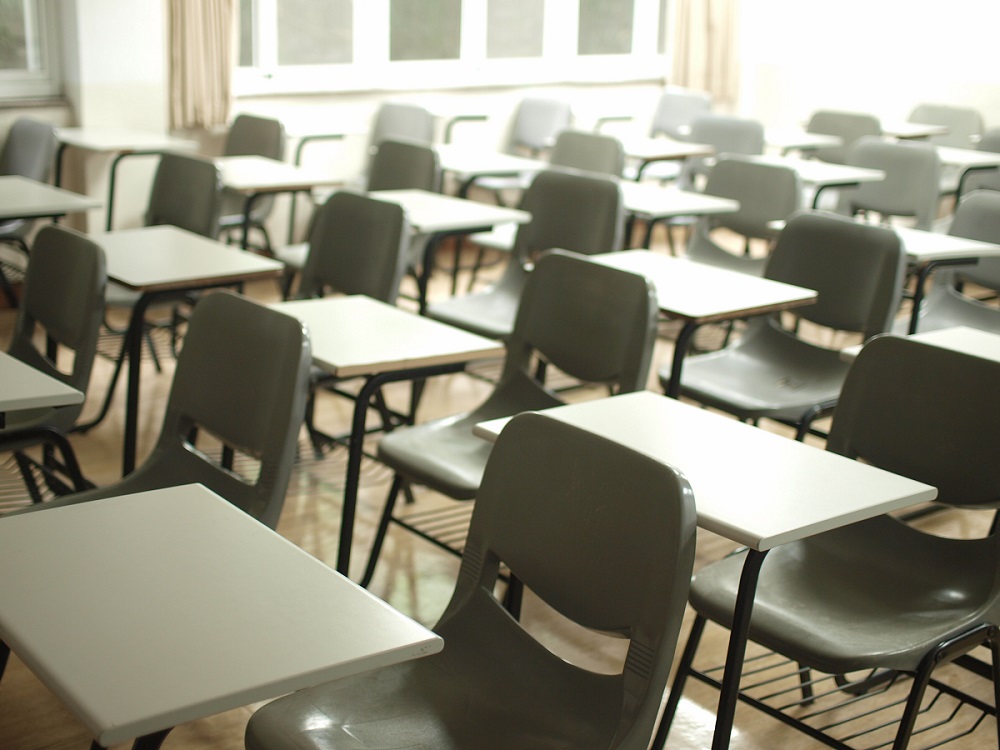Seoul issues new laws in wake of teacher suicides and unresolved problems
After demonstrations by teachers suffocated by pressures of the job, the Korean government has amended the law against abuse that was used to blackmail them in an education system where competitiveness starts as early as primary schools. Union leader Hyunsu Hwang to AsiaNews: 'This is only the first step. The government must now give them the chance to defend their rights by recognising the right to strike'.
Seoul (AsiaNews) - On September 24, South Korea announced new policies to improve the working conditions of teachers. Between July and September the country experienced moments of intense protests in which educators were the protagonists, who, following the suicide of a young primary school teacher, took to the streets to demand greater rights and protection.
The precarious condition of teachers is closely linked to the climate of intense competitiveness of the South Korean education system: between 2018 and June 2022, 100 teachers chose to take their own lives.
To better understand the phenomenon and its consequences, AsiaNews interviewed Hyunsu Hwang, international president of the Korean Teachers and Education Workers Union (KTU) - Jeon Gyojo in Korean - a teachers' union which today has over 70,000 members, 20% of all teachers in South Korea.
"Living as a primary school teacher in South Korea is not at all easy right now, that's why the teacher killed herself and that's why the protests started" comments Hyunsu Hwang to AsiaNews.
Korean society today presents itself as extremely competitive and this is reflected in its educational system. In Korea, parents want high grades for their children especially to have a greater chance of admission into prestigious universities, so that they can compete in the country's job market.
This climate of competitiveness is now tangible since primary school and students are not the only ones to suffer the consequences. Teachers have to deal with parents and a society that is increasingly demanding regarding their profession but which fails to implement adequate protection measures.
One of the most worrying aspects of tensions between parents and teachers is linked to a 2014 regulation aimed at protecting minors from abuse. The law, established with the best of intentions, made reporting mistreatment very simple.
Precisely this simplicity has transformed it into a form of blackmail: "Parents - reports Hyunsu Hwang - use this law in a truly harmful way, there are many cases of reports of abuse of minors; the teachers are left alone to deal with the lawsuits, the principals and the school - as an institution - don't care, this was the real problem".
A joint survey conducted in August by KTU and Seoul Green Hospital, and reported by the Korea Herald, shows that one in six teachers experiences suicidal thoughts. The survey was carried out on a sample of over 3000 teachers belonging to different teaching levels and showed how 24.9% of those interviewed reported "probable" depressive symptoms and 38.3% "definite" depressive symptoms.
Among them, female educators reported higher symptoms in 40.1% compared to 28.9% of their male colleagues. “I believe that the protests have had a positive effect in this sense – comments the trade unionist -. It's time we knew what the reality is about teacher mental health, teachers should share more on this issue."
To address this problem, the Korean government this week passed a series of new laws aimed at protecting teachers; Tighter regulation of child abuse-related complaints is also expected, with the hope that this will reduce pressure.
Until today, according to the 2014 legislation, a teacher, following an accusation of child abuse, was immediately suspended, the new law instead provides for more in-depth investigations before taking action against the accused.
Not only that, to respond more appropriately to the growing number of suicides, the Ministries of Education and Health have announced that teachers will be entitled to free psychological tests, counseling and mental health-related treatments under a new government plan 10 billion won.
However, one issue remains: among the over 200 thousand protesters who took to the streets in July, around 50 thousand were teachers who, exasperated by a system that does not adequately protect them, decided to leave the classroom to carry out collective action. In South Korea, however, collective protest for public and government employees is illegal.
Teachers cannot donate money or join political parties and collective protest could mean losing their jobs for them. “The fact that they do not have the right to protest or carry out other forms of political activity is why politicians have never cared about teachers' rights. Our rights, political rights, we do not put into practice in South Korea,” protests Hyunsu Hwang.
"We are organising a petition campaign in this regard and there are already some politicians who support us. From my point of view this first protest was successful, but it is only a small success and there is still a long way to go. For now, the campaign is only at the union level, but we would like to expand it to teachers who are not KTU members, so that we can have a greater impact for political rights and workers' rights."







.png)










